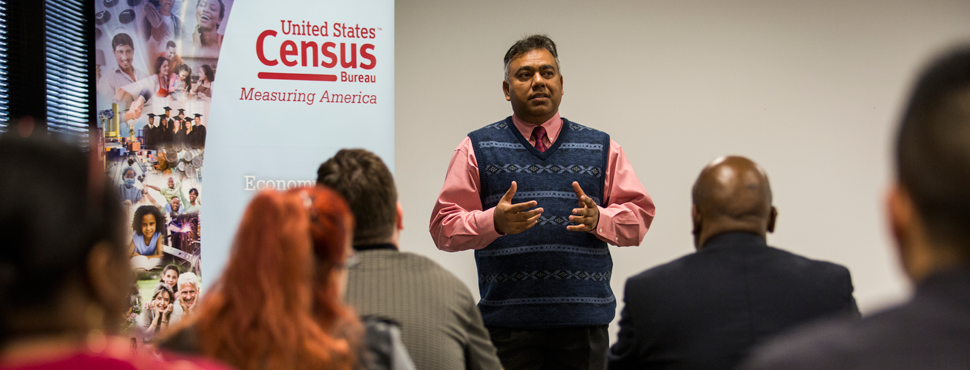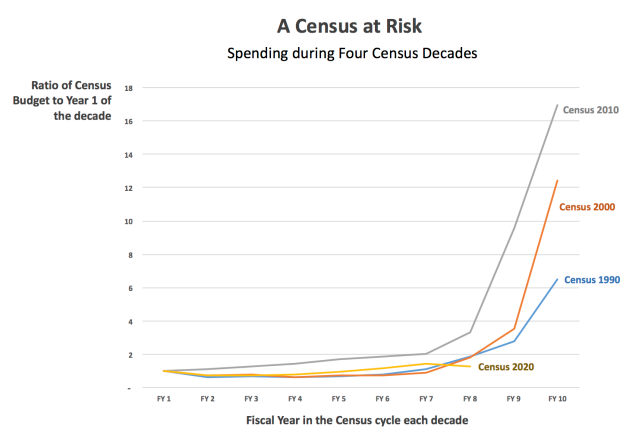Inadequate Funding Imperils a Fair and Accurate 2020 Census

In less than three years the 2020 U.S. Census will be conducted. While that might seem like a long time, the reality is that the next months are critical to a successful decennial count. And there are significant reasons to be concerned about the upcoming census.
Census 2020 Faces Underfunding Concerns
Many census experts are worried that the run-up preparation for Census 2020 is being seriously underfunded. The Census Project, an advocacy coalition of which APA is part, has charted the 10-year funding cycle for past decennial censuses. In each of the past four decades, there was a marked increase in years seven and eight to fund a comprehensive field test and develop new techniques. That isn't happening this time around.
The recently completed final FY 2017 federal spending agreement saw funding at $164 million below the level called for by the Census Bureau. The news for FY 2018 is potentially much worse.
While in past years Congress would be using this year to ramp up for the coming count, the budget proposed by the Trump administration would be essentially flat from 2017 to 2018. In a statement, the Census Project said the budget is "woefully underfunding preparations for the next census at a critical phase in the planning process."

Chart of census spending through four decades by The Census Project. Census 2020 is at the bottom. Sources: Congressional Research Service, courtesy of Congresswoman Carolyn B. Maloney (D-N.Y.). *2018 figure from the Office of Management and Budget (OMB) as reported by the Washington Post.
Census Funding Challenges and Leadership Vacuum
Yesterday advocates and census experts convened during a briefing with congressional staff to discuss funding issues and the growing concerns about preparations for the census.
Shortfalls in resources for 2020 preparations would also likely have negative implications for other census tools, such as the American Community Survey, because those programs would face a squeeze with resources potentially diverted to deal with mounting costs for decennial preparation. ACS could also face damaging amendments when Congress considers new appropriations legislation.
At this pivotal time, the Census Bureau is also without key leadership.
Earlier this month, Census Bureau Director John Thompson unexpectedly stepped down. His decision to leave the agency was in part a result of the Trump administration's lack of support in the budget. The resignation helped highlight the potential crisis. APA joined partner organizations concerned about vital federal data in calling for the Trump administration to swiftly appoint a well-qualified new leader for the Census Bureau.
Yesterday, Commerce Secretary Wilbur Ross was set to testify before a House Appropriations Subcommittee. Census issues are sure to be a big part of the discussion. Now is an important time for planners to engage with legislators about the critical value of census data and the need to ensure both solid leadership at the Census Bureau and full funding for both an accurate 2020 count and essential data tools for local decision-making like ACS.
APA has made the defense of federal data a major priority for advocacy and will continue working with partners to support funding for vital data programs. Federally funded data underpin good local and regional plans, so we must push Congress now to support the Census Bureau.
Top image: Census workers were trained in Houston in 2016. Photo courtesy U.S. Census Bureau.


